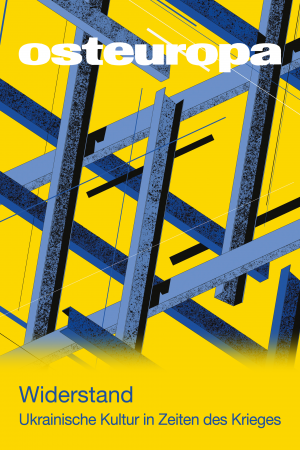Ukrainian History
Approaches to Interpretation and Explanation
Tetjana Portnova, Andrii Portnov
Deutsche Fassung
Abstract
For a long time, Ukrainians avant la lettre lived in different empires. Does such a “stateless people” have a national history? Historians of different persuasions such as Mykhailo Hrushevs'kyi, Stepan Tomashivs'kyi, or Viacheslav Lypyns'kyi unreservedly answered this question in the affirmative. To define the Ukrainian nation and its history, they focused on the Cossacks, the pursuit of freedom and self-determination, the peasant ethnos, or the language. This approach, which was committed to social and societal history, stood in contrast to a political historiography related to the state. This attempted to grasp the history of Ukraine geographically and territorially. By this telling, the Principality of Galicia and Volhynia was the first “Ukrainian nation state”. Both schools express the essence of the nation as a collective entity that transcends time. Ukrainian historiography, wether in exile, in the Soviet Union, or in independent Ukraine, follows in the footsteps of these schools.
(Osteuropa 6-8/2022, pp. 79–102)



